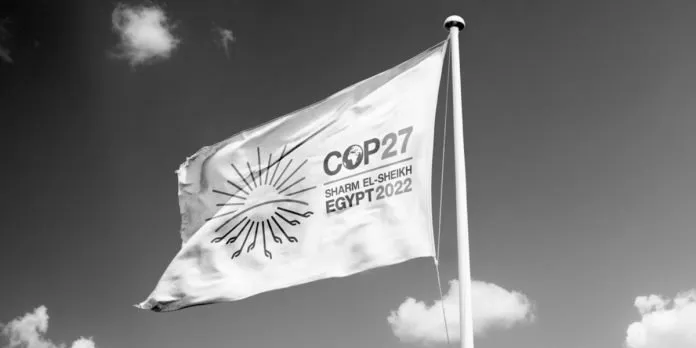Message to COP27: There is no climate emergency
November 9, 2022
By TCW
THE shindig known as COP27 is now in full swing in the sunny Egyptian resort of Sharm El Sheikh. The great and good gathered there are being sent an open letter by Climate Intelligence (Clintel), an independent foundation launched by two Dutch men, geophysicist Guus Berkhout and science journalist Marcel Crok, telling them precisely why they are wasting their time and our money. On the contrary, they are doing enormous harm.
It’s a brilliantly clear statement which deserves to be widely circulated to everyone deluded by the climate emergency myth, and particularly to our MPs who appear to have not the slightest idea what the consequences of Net Zero will be. This is the letter:
Your Excellencies:
By the year 2030, historians will wonder with amazement how it could happen that the UN in previous decades had proposed far-reaching climate-related measures that totally failed to arrest global warming, but instead would have the unintended consequence of an unprecedented negative impact on the world’s prosperity and well-being.
They will wonder why many people at that time unquestioningly believed in an ‘existential climate crisis’. That crisis narrative was based on outdated ‘over-heated’ computer models, in turn widely supported by mainstream media. They will consider it beyond belief that a senior UN official in September 2022 audaciously declared that ‘we own the science, and we think the world should know it and the (social media) platforms also’.
Indeed, why did the UN and IPCC ignore Clintel letters (the most recent in October 2021), clearly pointing out serious scientific flaws in the IPCC Sixth Assessment Report? Why did IPCC refuse any open debate on these flaws? Does the UN not realise that Clintel’s global network now embodies greater objective scientific knowledge than exists within IPCC?
They will wonder why the world did not loudly protest the spread of the superstition that climate science was fully understood (‘The Science is Settled’, the UN and politicians declared). That superstition regrettably led to legislation on totally unnecessary social engineering measures with net-zero CO2 targets (‘mitigation’).
Indeed, why didn’t the UN then want to let the world see that the mitigation measures they proposed were scientifically nonsensical, technically unfeasible, economically unaffordable and, ultimately, socially unacceptable?
Why did they not admit that mitigation even at a global scale – as already proven in the pandemic of 2020 – would have imperceptible effect on climate?
Why did they also not want the world to know about the fact that CO2 is an essential building block for life on earth? More CO2 is indispensable in making the earth greener. Looking at all the facts, more CO2 is much more likely to bring net benefits than net harm!
They will also wonder why an extremely expensive transition to intermittent renewables was pursued without realising that the transition would lead to major economic problems.
Indeed, why didn’t people then recognise that reliable energy supply with solar panels and wind turbines was technically impossible without the future availability of affordable large-scale electrical energy storage?
Why then didn’t people recognise that mass generation of solar and wind energy would create a serious shortage on materials such as copper and neodymium?
And why then were conventional fossil fuel power plants banned, particularly in Africa, while there was as yet no affordable and reliable alternative? Much of the serious energy crisis was erroneously blamed on the war in Ukraine; the reality however was that world leaders had not promoted investment in conventional reliable power generation to maintain economic well-being and societal stability.
Fortunately, today it is not yet 2030 and we still have time to make the necessary changes. What is needed to make that happen?
Here are three suggestions for you, the global political leaders:
- Depoliticise climate science, discarding computer models that do not match reality, focusing instead on real-world climate observations and the latest climate science, listening carefully to objective interventions from independent experts.
- Change climate policy from the senseless mitigation approach to the successful adaptation method. Mitigation is prohibitively expensive and has never saved a single human life and will do very little to alter an ever-changing climate. Adaptation, on the other hand, is affordable, can be precisely focused and has already saved millions of lives. Adaptation is without a doubt the way to go in climate policy.
- Invest in extending and replenishing the world’s oil and gas reserves. Be realistic, the world will still need oil and gas for several decades. In parallel, go full steam ahead with developing nuclear power, the energy source of the future.
Dear Excellencies, you are meeting at COP27 apparently to promote continuation of failed global climate policy. It would be a crime against the African people to require them to base their energy system on intermittent wind and solar power. After all, that would push the more than 1.3billion people there further into poverty. Economic development cannot happen without affordable and reliable energy supplies.
Africa must make full use of affordable indigenous fossil fuels for power generation, with a future plan for a network of modern nuclear power plants. With plenty of affordable energy, the supply of clean drinking water can also be guaranteed.
Next, full efforts should be made to apply adaptation technology, especially for growing tailor-made crops (‘precision farming’) and for securing against extreme weather (‘risk minimisation’). Those, as you well know, are the real and urgent needs of Africa.
The above points are the messages from Clintel to all of the global political leaders arriving in their private jets to attend the COP27 meeting in the luxury resort of Sharm El-Sheikh. We beg you, our political leaders, to be conscientious of the daily realities of grinding poverty of the forgotten people living on the African continent in the shadow of your flightpath.
